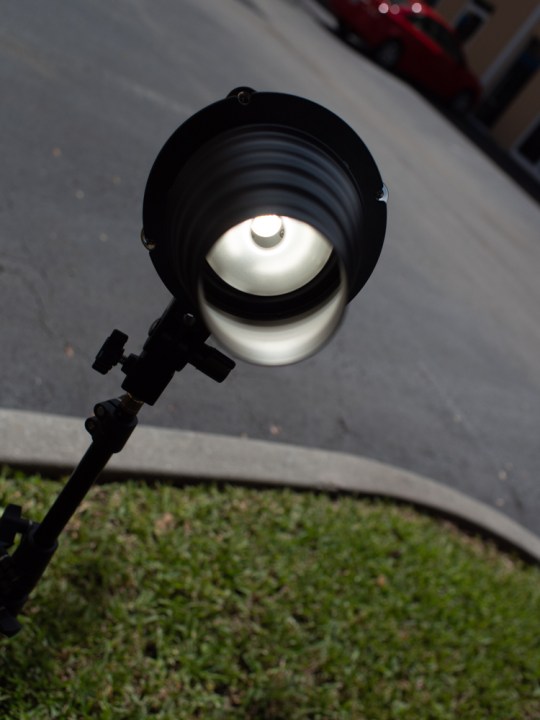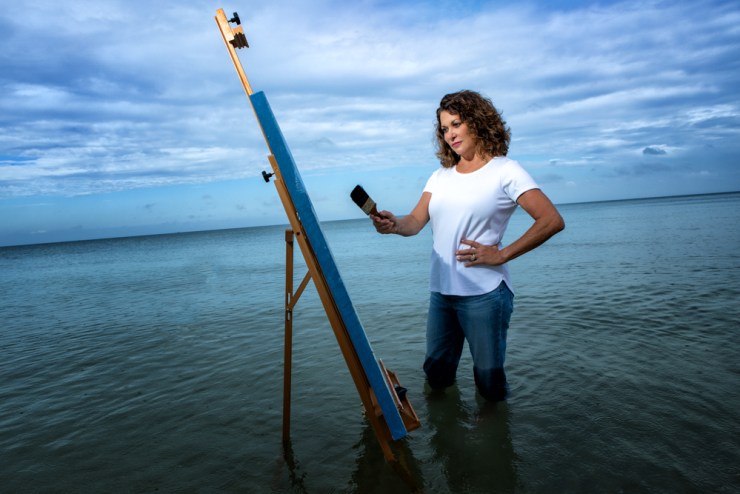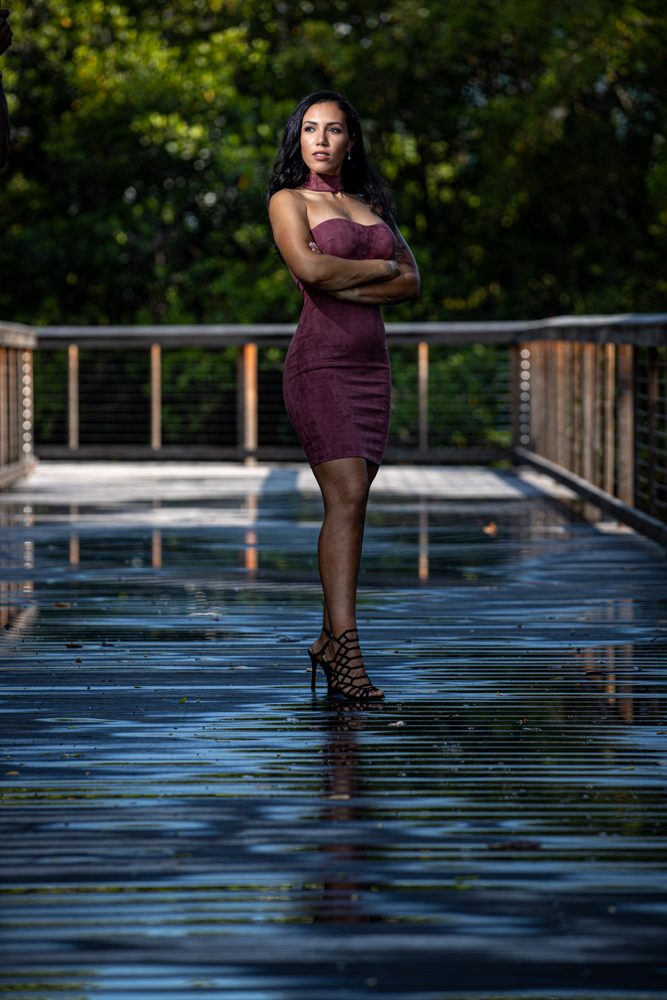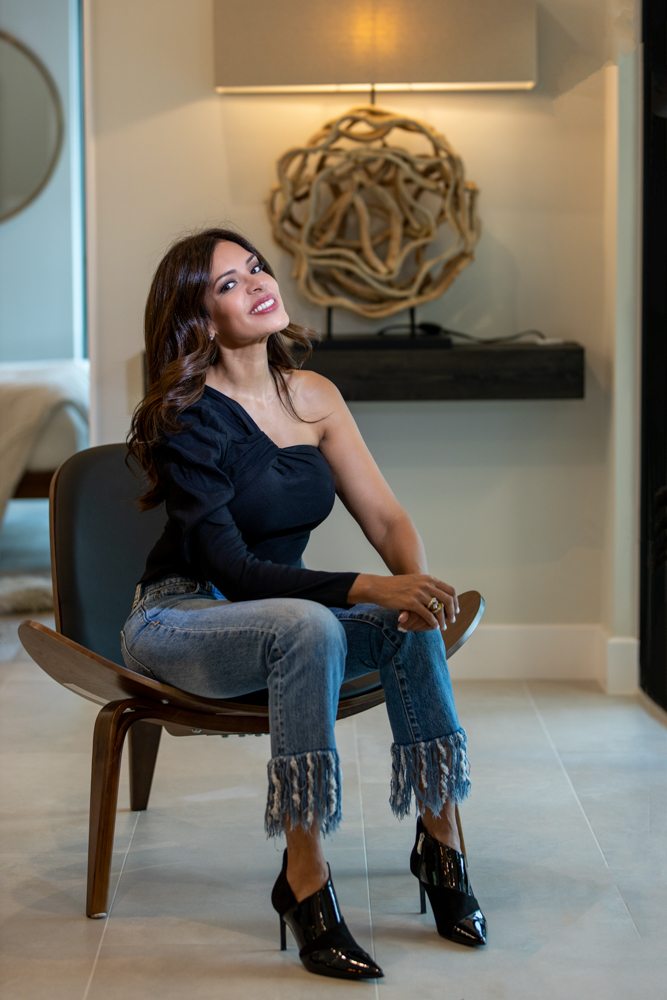Yes, the snoot, the most underrated and underutilized light modifier
I’ve been a professional photographer since 2005 and in that time I’ve tried a TON of different lighting modifiers. Umbrellas, softboxes, scrims, translucent umbrellas, umbrellas with diffusion, octo boxes, light spheres, barn doors, flags … you name it. But recently, I discovered the snoot.
What is a snoot?
Think of a snoot as a spotlight for your flash. A tightly controlled beam or pillar of light — similar to a spotlight for a singer or an actor on a stage. Usually shaped like a cone, it fits over the head of your flash unit.
Some are made for specific flash units, others are more universal. Some creative photographers have made their own out of black poster board.

Why a snoot?
When it comes to composing and lighting your images, one of the rules is, the viewer’s eye will usually go to the brightest object in the photo. A snoot allows you to aim a pillar of light with marksman-like precision exactly where you want it. This way, the intended subject or focal point of your image becomes immediately obvious to the viewer.
Moreover, a snoot can create drama and huge visual interest in your images. Additionally, snoots are usually — relatively — inexpensive to obtain.
.mgl-tiles { display: none; } #mgl-gallery-634ed505dbb69 { margin: -5px; width: calc(100% + 10px); } #mgl-gallery-634ed505dbb69 .mgl-box { padding: 5px; } @media screen and (max-width: 768px) { #mgl-gallery-634ed505dbb69 { margin: -5px; width: calc(100% + 10px); } #mgl-gallery-634ed505dbb69 .mgl-box { padding: 5px; } } @media screen and (max-width: 460px) { #mgl-gallery-634ed505dbb69 { margin: -5px; width: calc(100% + 10px); } #mgl-gallery-634ed505dbb69 .mgl-box { padding: 5px; } }
Snoot camera left above the canvas aimed at her face and chest – her face is the brightest object in the shot and the first thing you see
A snoot allows the photographer to aim the light exactly where they want it. In this example we had the Godox version ($9.99) over an AD200 just above the easel camera left aimed at the subject’s face and chest
Downsides
Because the light coming through a snoot isn’t diffused, you can create overly contrasty images and the lighting can be a bit harsh. To get around this, you want to try and center the light on your subject so that noses don’t cast unwanted shadows and you definitely want to use a snoot off camera.
Where do I get one?
Fortunately, they are easy to come by and pricing ranges anywhere from $10-$200. I’ve been using a Godox AD200 and the one that’s actually made for the Godox V1. I’ve found that it works fine.
I also use a Profoto B1 when I’m on location and the version of the Snoot for OCF Flash Heads from Profoto — there are also snoots made by MagMod and countless others.
If you want to up your portrait game and add some drama to your images, pick up a snoot and experiment, you’ll be pleasantly surprised by the results! No go have some fun and make some magic!
.mgl-tiles { display: none; } #mgl-gallery-634ed505dc620 { margin: -5px; width: calc(100% + 10px); } #mgl-gallery-634ed505dc620 .mgl-box { padding: 5px; } @media screen and (max-width: 768px) { #mgl-gallery-634ed505dc620 { margin: -5px; width: calc(100% + 10px); } #mgl-gallery-634ed505dc620 .mgl-box { padding: 5px; } } @media screen and (max-width: 460px) { #mgl-gallery-634ed505dc620 { margin: -5px; width: calc(100% + 10px); } #mgl-gallery-634ed505dc620 .mgl-box { padding: 5px; } }
Camera left. Profofo B1 and OCF Snoot.

Snoot camera right
Pros
- Inexpensive to obtain
- Small — easy to put in your camera bag
- Easy to use
Cons
- If used improperly, you can case weird shadows on your subjects
Tell your story with the second annual Visual Storytelling Conference!
Experience four days of interactive, online training sessions featuring a range of educational content with experienced photographers and content creators. This free event kicks off with a series of technical boot camps to build essential skills, followed by live, online sessions on photography, video, business and social media. Join live from March 10-13, 2022!
